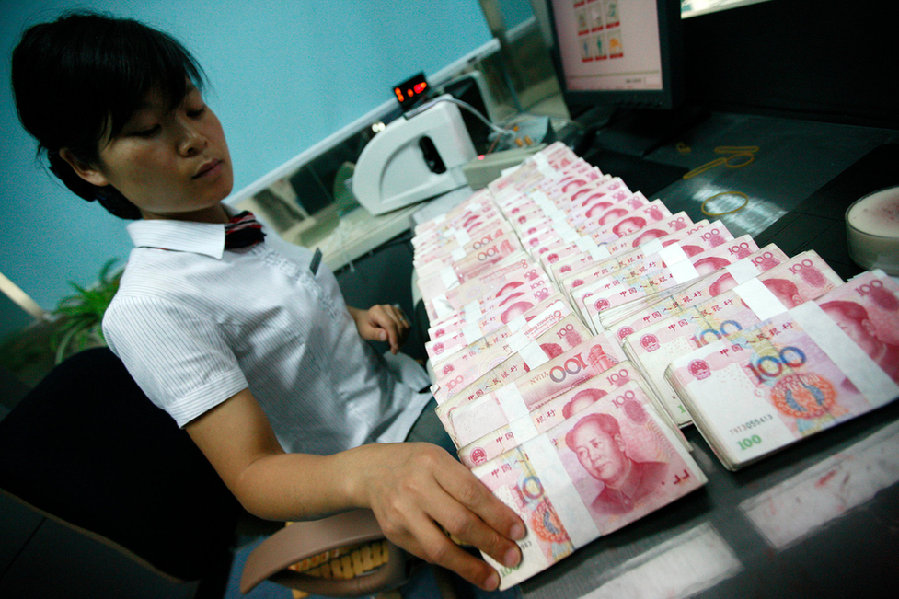10 predictions for China's economy in 2015 (Part II)
- By Zhang Rui
 0 Comment(s)
0 Comment(s) Print
Print E-mail China.org.cn, November 5, 2014
E-mail China.org.cn, November 5, 2014
|
|
|
A bank clerk counts money. [File photo] |
10. By maintaining appropriate liquidity, there will be no more money squeezes.
We predict that interbank market liquidity will be relatively relaxed and remain at an appropriate level. Private sectors may feel liquidity squeeze, but the capital outflow caused by a Federal Reserve rate raise will not happen, which may lead to money shortages in real economy and interbank market.
Although the funds outstanding for foreign exchange will continue the trend of stopping being the main channel for putting China's monetary base into circulation, the possibilities of a shrink in the funds outstanding for foreign exchange is not high. So even if the Federal Reserve raises the rate, the global easing trend has not ended yet, and the Eurozone and Japan will maintain quantitative easy monetary policies. Even the Federal Reserve raises the rate, it will be tender and controllable. The too strong U.S. dollar will damage American enterprises' export competitive edges.
The shrink of the funds outstanding for foreign exchange will not necessarily lead to a money shortage. In June 2013, the major cause of the money shortage was the unchecked leveraged of the financial institutions that rely on shadow banking. In 2014, economic growth slowed and the scale of the shadow banking sector shrank. Though the funds outstanding for foreign exchange are low, the abundant interbank liquidity remains unchanged. Considering that the economic growth goal will probably be lowered in 2015, the real estate market will be weak, and the required reserve ratio will reach a record high. So even if the funds outstanding for foreign exchange shrink, there will no possibility of a money squeeze.
We should still pay attention to the credit crunch in private sector. The downturn in economic growth and the tone of monetary policies for total volume stabilization will cut back on the banks' risk appetite in private sector that may feel some funding pressure.





Go to Forum >>0 Comment(s)